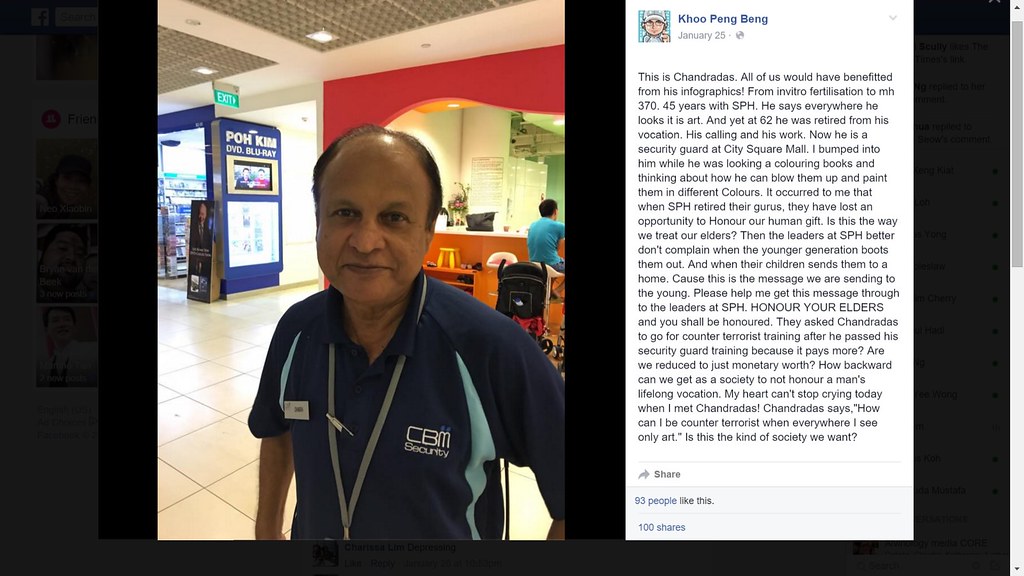It just occurred to me that myself, as well as most of Alvinology.com’s readers, are what Member of Parliament Desmond Choo calls “millennials”. In Singapore, we number approximately 1.2 million and take up 22 per cent of the resident population. And we are the topic of discussion world wide.
Why? Why would a demographic of people from ages 16 to 35 deserve such attention? Because the economy in the next 50 years will be shaped by us. And that is why Mr Choo has called upon the Government to help Millennials succeed at work, at home and in society.
Whoa, when you put it in this perspective, it makes me feel very important.
Mr Choo went on to share four things that he has found out about the aspirations of Millennials:
1. Millennials don’t just want to be aces at their careers. They want to achieve success at building strong families and social bonds too.
2. Millennials believe in chasing growth and learning curves. They want jobs where they feel that they can continue learning for life.
3. Millennials learn best when there is a combination of good communication, hands-on work and mentorship.
4. The older Millennials – those born in the 80s – have proven to be resilient as they experienced tough times entering the workforce during the 2008 global financial recession. If this strength is properly harnessed, they can make a strong showing into SG100.
This means that the typical Millennial would be very sad if he were in former infographics artist Chandradas’ shoes. Some of you might have seen this on your friend’s Facebook timeline this week:

While Mr Choo did not make any reference to Mr Chandradas’ situation, he pointed out that the younger generation must be paired with mentors from the working world to provide career guidance. He urged government agencies to work closely with Labour Movement’s Unions and U Associates for access to networks and mentorship. If Singapore can successfully match apprentices to mentors via crowdsourcing, someone would be able to give Mr Chandradas a training or mentorship position in his field after seeing this post.
Mr Choo also pointed out that chasing degrees was not as beneficial as floor experience, and said that the Government should look into incentivising companies – especially the small and medium enterprises – to provide more work experience, apprenticeship and internship opportunities. “MOM can consider further measures to help these SMEs, especially in enhancing their HR capabilities,” he said. This is so true as many SMEs don’t really have a HR department to deal with such complexities.
Lastly, he called upon employers to establish two workplace practices that best cater to the work inclinations and aspirations of our Millennials:
- Allow for flexible work arrangements. According to a survey by the Ministry of Manpower in 2014, 50 percent of firms provided at least one form of flexible work arrangement. More can be done so as to allow employees to do telecommuting, have flexible work schedules or have staggered working hours.
- New mums should have the legislated right to request eight weeks of Flexible Work Arrangement after her 16 weeks of maternity leave, so that she has an easier time transitioning from caring for a newborn full-time and having to return to work. As for paternity leave, only the Civil Service and 63 other companies are on board. Mr Choo wants to urge the National Population and Talent Division to consider further moves to improve the take-up.
In a separate speech, Mr Choo’s colleague, first-time MP Mr Melvin Yong, posited the idea of “sectoral tripartism” to tackle the different needs and challenges from different industries.
“For example, when there is an economic crisis, different industries would likely be impacted at varying degrees. Some perhaps may not be affected at all. National tripartism could provide the main direction and guidance, while sectoral tripartism could tailor them according to the respective industries’ needs,” said Mr Yong.
One of the successful examples of sectoral tripartism can be seen in the public transport industry. When it was decided that the public bus industry would be restructured under the new bus contracting model, the workers were mainly concerned about job security and welfare. The National Transport Workers’ Union (NTWU) highlighted the concerns to Public Transport Tripartite Committee which comprises representatives from NTWU, Land Transport Authority (LTA), Ministry of Manpower (MOM) and public transport operators.
The union’s feedback was noted and the Public Transport Tripartite Committee developed a set of guidelines, which ensures that all affected employees must be offered a job by the incoming operator on employment terms not worse off. The affected employees can choose to join the new operator, or be re-deployed by their current employer where feasible. Furthermore, all the public bus operators would have to take note of the guidelines and factor them into their tender proposals accordingly. This ensured that all workers were able to find work in the same industries.
Considering that the economic outlook for the East and South Asian region is bleak for the coming months, this idea could not come at a better time.
In a workforce dominated by Millennials in the near future, the Labour Movement would have to reach out to more workers and expand its membership in the different industries – even catering to our burgeoning economy of freelancers. (Me!) It would then be able to provide an accurate ground sensing and voice out workers’ concerns at sectoral tripartite discussions.
Well, this Millennial freelancer here can’t wait.












